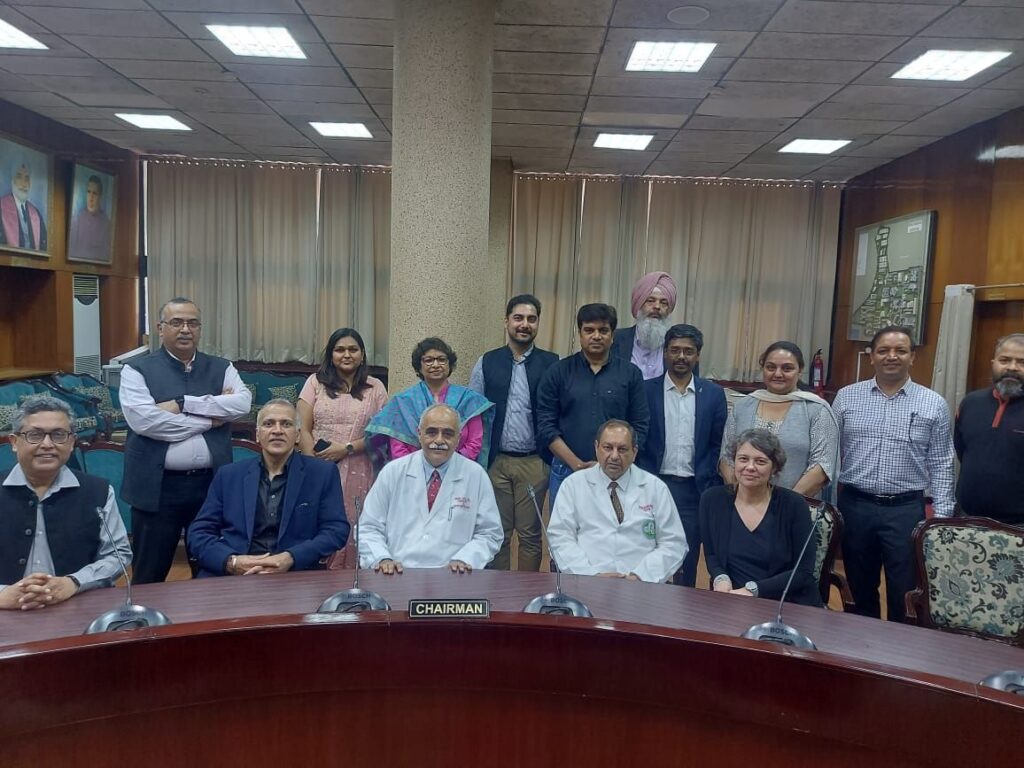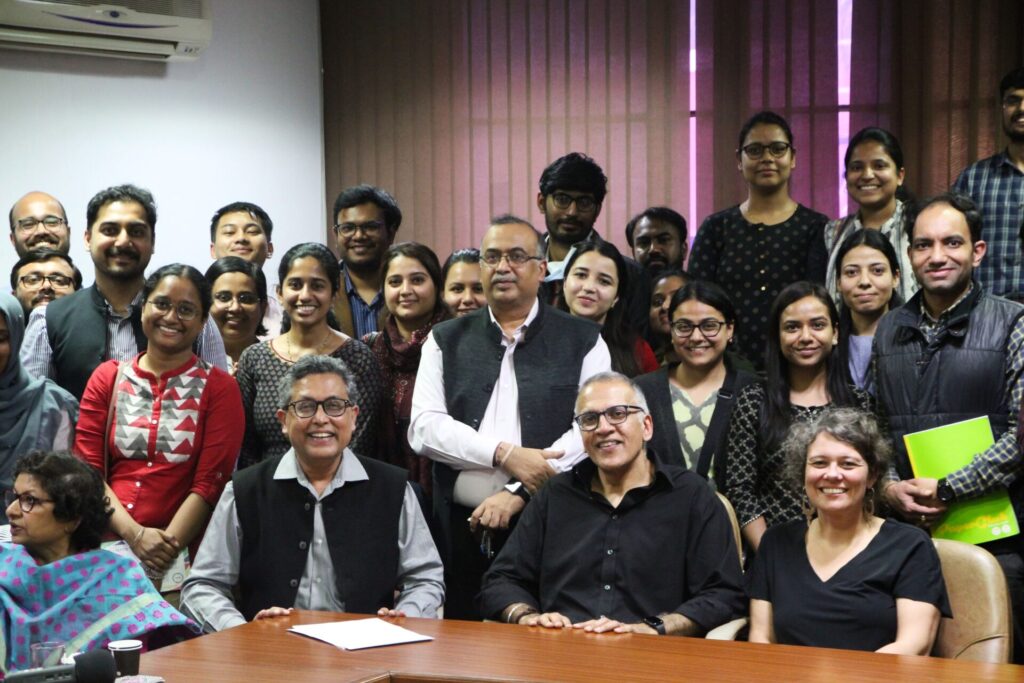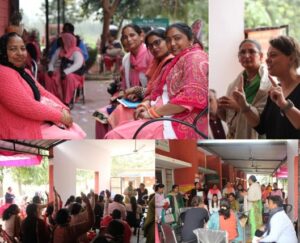Mental Health Research in the Punjab: Combining Anthropology and Psychiatry
KMMS professors collaborate with researchers in the Punjab
A research team led by Professor Lisa Dikomitis, medical anthropologist, and Professor Sukhi Shergill, psychiatrist, is working with researchers in the Punjab, in India and Pakistan. They hold Visiting Professorships at the Postgraduate Institute of Medical Education & Research (PGIMER) in Chandigarh, India.

At PGIMER, they engaged with several psychiatrists in training. Professor Dikomitis gave a lecture about anthropological mental health research, and Professor Shergill talked about his schizophrenia research.


The Punjabi University in Patiala welcomed the KMMS Professors, who gave lectures to students and faculty about their mental health research.


In September 2023, they gave a keynote about the potential of ethnography in public mental health research at the Diamond Jubilee Conference on Mental Health at PGMIR in Chandigarh.

Setting up collaborative mental health research in the Punjab
The research visits to several universities and institutions in the Punjab, in India and Pakistan, had three main objectives. Firstly, the Kent researchers set up collaborations with researchers at universities and mental health institutions in the Punjab. Secondly, to engage community members with mental health research activities, some fieldwork in Punjabi villages that have a connection with Kent. Finally, to learn about how mental healthcare is organised in the Punjab.
The KMMS professors visited several healthcare facilities: district hospitals, primary care centres and community health centres. They talked to healthcare professionals, patients and carers to learn more about how mental health care is delivered in the Punjab. These meetings were essential to set up connections between psychiatrists, psychologists and researchers in Kent and in the Punjab, who will work together on mental health studies.
They visited the Institute of Mental Health in Amritsar, India, where they worked with psychiatrists and nurses in training.

They also visited the Punjab Institute of Mental Health in Lahore, Pakistan, to initiate collaboration in mental health research.

Ethnography of mental health care in the Punjab
Culture is embedded in who we are, in what we do and how we do things. We express culture through our rituals, religion, language, music, food and the ways we develop our social relations. Anthropologists are researchers who study culture. They do this through a specific research method called ‘ethnography’. This comes from the Greek words ‘ethnos’ (cultural group) and ‘graphy’ (to write). Ethnographic data are collected through first-hand experience of a culture, called participant observation. Anthropologists live for a long time in a community, often with a local family, and they engage in the daily activities of that culture, interview community members and take detailed notes and photographs. With that information, anthropologists write articles and books called ‘ethnographies’.
Professor Lisa Dikomitis travelled through the Punjab in India, with Punjabi Sikhs who live in Kent, and who have been engaged as community co-researchers in mental health research in Kent. They visited the Punjabi villages from which these Kent Sikhs migrated, and observed and engaged in everyday activities. These included working on the sugarcane fields, taking care of the animals, sewing clothes, preparing food, visiting the Golden Temple in Amritsar and local Gurudwaras, as well as attending several sports and cultural rituals. The researchers convened focus groups and meetings with community stakeholders. Such community engagement and involvement activities are important to ensure that any mental health research projects are designed with community members.

Community engagement and involvement
An important aspect of every culture is how community members experience health and illness. Medical anthropologists conduct ethnographic fieldwork in a cultural group to better understand the factors which influence the health and illness of the members of that culture. They look at the experience and distribution of diseases, how illness is prevented and treated, at local health processes and how cultural norms and habits influence the health process. Professor Dikomitis met with several ASHAs (Accredited Social Health Activists), community health workers who are an important part of the healthcare system in the Punjab in India.

Funding and contact
This research was funded by a University of Kent GNCA and ODA grant awarded to Professor Lisa Dikomitis. For more information, please contact Professor Lisa Dikomitis at L.Dikomitis@kent.ac.uk.